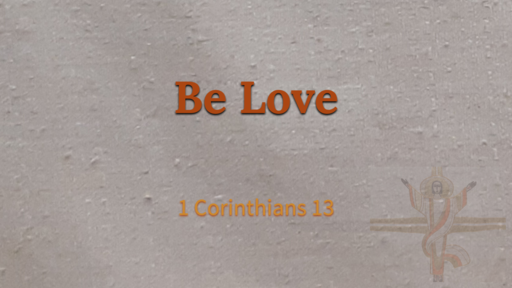Be Love

Paul isn't writing an instruction manual on romantic love. He's writing about how to be in community -- to be love in the world.
Love is great!
What is Love?
Read outside the context of Paul’s entire letter, it might seem that love is simply the foremost in a list of virtues, yet another talent one might try to perfect; but read within the context of the letter, this love is a state of being.
4 Hear, O Israel: The LORD is our God, the LORD alone.a 5 You shall love the LORD your God with all your heart, and with all your soul, and with all your might. 6 Keep these words that I am commanding you today in your heart. 7 Recite them to your children and talk about them when you are at home and when you are away, when you lie down and when you rise. 8 Bind them as a sign on your hand, fix them as an emblemb on your forehead, 9 and write them on the doorposts of your house and on your gates.
